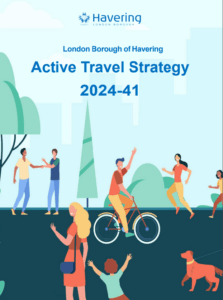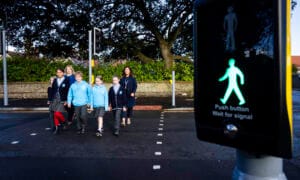The UK’s Intelligent Transport Society, ITS (UK) is marking Road Safety Week by highlighting the ways its members’ innovations are reducing danger on the country’s road network.
“ITS isn’t just about reducing traffic jams and offering passenger information to people,” explained ITS (UK) Secretary General Jennie Martin. “It’s about all sorts of innovations on the road and in vehicle that centre on making travel safer.”
ITS (UK) has a number of Forums which spend much of their time considering road safety benefits of technology.
“As a rule, road safety improves significantly when road users are all ‘doing the right thing’ and complying with all relevant laws,” explained ITS (UK) Enforcement Forum Chair Geoff Collins of Jenoptik. “Whilst most people intend to follow the rules, some require something of a nudge and this is very much where ITS plays a role. Technology is a highly efficient and effective way to encourage compliance, without the need for police or enforcement officers everywhere, all of the time.
“For example, cameras can be located outside schools, operating during pick up and drop off times, ensuring that drivers don’t park on zig zags or yellow lines, thus causing an obstruction and a potential hazard for children as they cross a road. Such an approach is a simple way to increase safety at the most hazardous time, without being seen as heavy handed.
“Average speed cameras are now widely used across the UK to manage driver behaviour over long stretches of road, resulting in significant safety improvements alongside smoother traffic flows and a reduction in emissions. Once again, technology allows an efficient and automated way to control road safety, in this case 24/7 and over significant distances.”
As vehicles become more connected they also become safer, as Connected Vehicles Forum Chair Andy Graham from White Willow Consulting pointed out. “Our Forum is active in the safety benefits of connected ITS in firstly promoting the benefits of eCall – a lifesaving system fitted to new cars and vans since 2018 – as awareness and understanding of its use is poor,” he said. “We are also looking at connecting all types of moving things of all ages and sizes, from cycles to trucks, where the greatest safety opportunities lie.”
Technology is also being used to help the most vulnerable in society. “The Inclusive Mobility Forum is applying pressure on the need for ITS traffic management systems to take account of pedestrian flows,” commented Forum Chair Kris Beuret OBE. “Currently these systems can’t factor in pedestrian demand leading to people crossing dangerously or without sufficient time. We are also raising the need for cycles and especially e-scooters to have sound alerts.”
ITS (UK)’s support for road safety has been welcomed by Roadpeace, the UK’s national charity supporting road crash victims. “RoadPeace welcome the many innovative ways that ITS (UK) and its influential members are working across their key sector to help reduce the risk of road danger on the UK’s transport network,” said the charity’s CEO Nick Simmons. “Even with reduced travel volumes because of the pandemic, this year the RoadPeace Helpline is dealing with a growing number of calls. Every day in the UK, five people die in a road crash with hundreds more having to cope with life changing injuries. We strongly support and appreciate the vital work being carried out across the various ITS forums particularly around enforcement and agree that enhanced connectivity across all modes will help make travel significantly safer as we work towards Vision Zero.”
National Road Safety Week runs from 16-22 November.

























